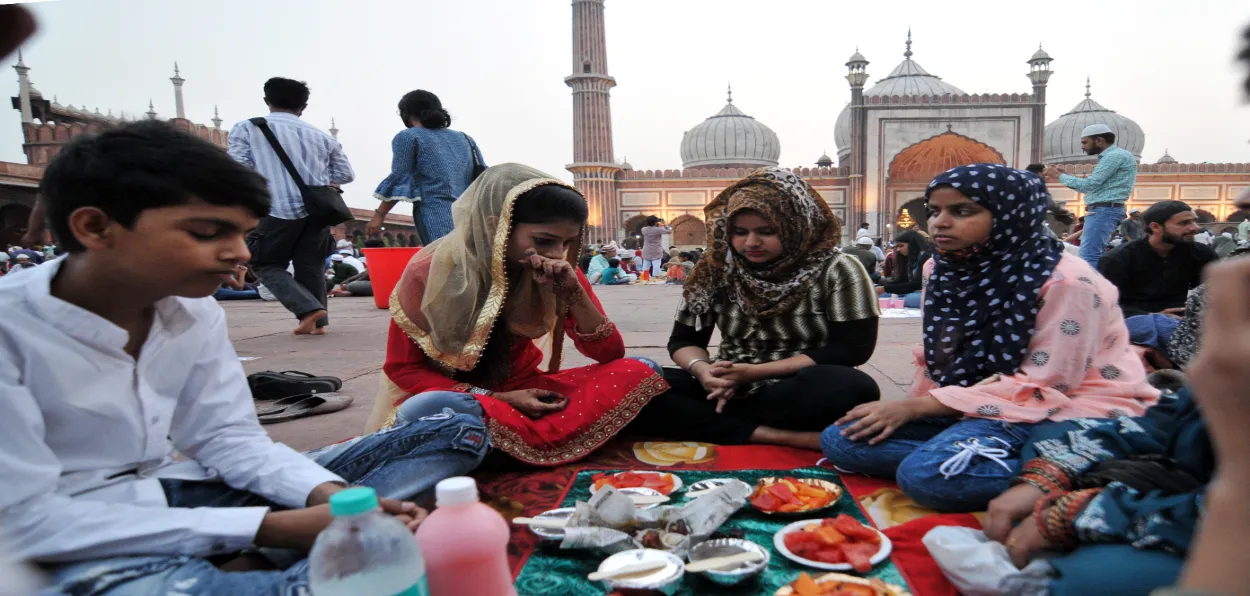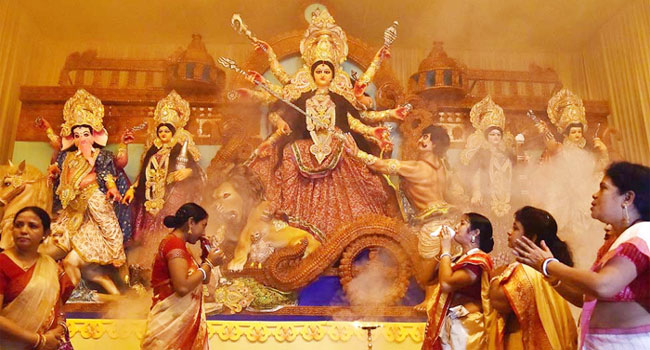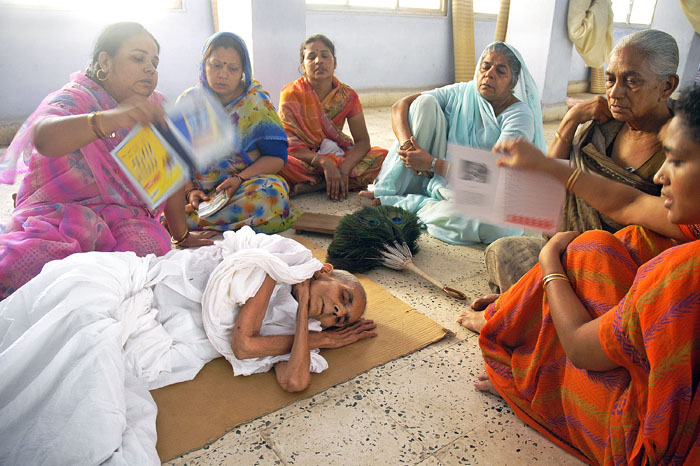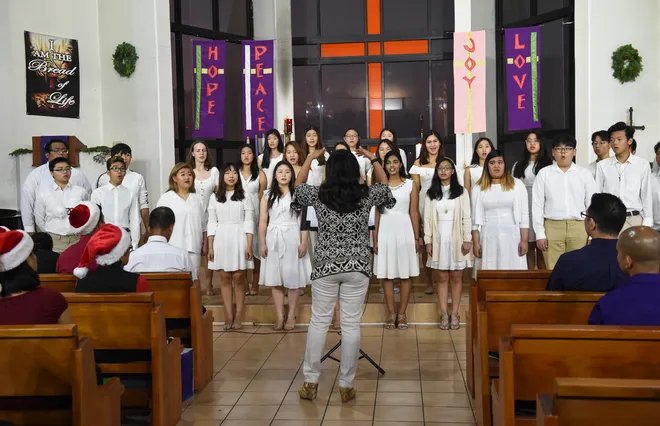
New Delhi
If you happen to meet Amar, Akbar, and Anthony – the quintessential representatives of Hindu, Muslim, and Christians of India, as coined by the Bollywood - these days, chances are that all of them are fasting for religious reasons. The difference, however, is that while Akbar’s fasting is the talk of the town, the others’ is more of a personal affair.
It’s a fact that besides Muslims who are currently observing the dawn to dusk rigorous fasting for the ongoing month of Ramazan, Hindus, and Christians also are simultaneously observing fasting for Navratri – the 9-day festival to venerate the Shakti, female divinity – and Lent – the 40-day fasting and abstaining in commemoration of the sacrifices of Jesus Christ for humanity, respectively.
However, the big difference is that while Roza, fasting for Muslims, is a fundamental religious duty, for Hindus and Christians it’s a personal choice.

Hindus venerating Goddess Durga during navratris
Also, the Muslim fast is considered more rigorous for the human body and mind because of the rule that the fasting person will not even drink water. As Islam came from a desert land, this rule of Roza makes this fast a hard test of one's faith and personal discipline.
For Muslims, Ramazan is the month in which all able-bodied followers of Islam observe fasting for one month culminating in the festival of Eid.-ul-fitr
The fast begins in the early morning after having sehri – the pre-dawn meal and prayers –and lasts till evening at the expected time of the sighting of the moon.
Families bond over the fasting as everyone wakes up early for prayers and sehri and also breaking of the fast in the evening.
However, fasting also involves the purification of the soul and body by refraining from vices, getting angry, serving the poor, etc. It takes immense self-control to survive without food and water for about 12-14 hours a day.

A follower of Jain Dharma on eight-day fasting is surrounded by family and friend
Health professionals suggest that the ritual has many physical, spiritual, and psychological benefits. Additionally, it provides an opportunity to empathize with the poor and the needy.
For the Hindus, the Navratri is a time for prayers in temples and homes in veneration of female divinity - Shakti - considered as the energy-giver of the universe and all creation.
It’s voluntary and involves people abstaining from eating grains during the period and living off on a frugal diet of fruits and non-grain food for nine days and twice a year.
Also, people restrict their food intake. In many parts, Hindus sow wheat in a small bowl and keep it in their temple or sacred space. The wheat germ that grows is considered to be a symbol of abundance and is immersed in a water body at the end of the festival.
However, before this, many Hindus observe a month-long fast during the month of Magha. Again, it’s a matter of personal choice that those observing fast in the 12th month of the Samvat calendar eat one time and must begin their day by taking a bath in a river even when they live in very cold regions.
Hindus have many rules for fasting every week and on key occasions but none is compulsory.
Catholics across India are currently observing the 40 days of Lent during which they restrict their food and limit their choices of it.

Catholics praying in the Church during the Lent period
Mostly elderly people or those voluntarily picking to follow it, eat one meal per day and abstain from meats, and alcohol, and spend time in prayers.
Through this fasting Catholics replicate Jesus Christ’s sacrifice and disappearance. It traditionally lasts for 40 days, and essentially commemorates the fast of Jesus in the desert. It starts with Ash Wednesday and ends with Maundy Thursday followed by Good Friday.
On Good Friday, the day Jesus Christ was crucified Catholics even observe silence to reflect on their soul and inner self.
Catholics suspend all social events like weddings and other celebrations during this period. It ends with Easter, the joyous occasion to commemorate the resuurection of Jesus Christ and regeneration.
ALSO READ: Most of India's 3 lakh mosques reflect syncretism, traditions of India
There are traditions of rigorous fasting among Buddhists and Jains too.
